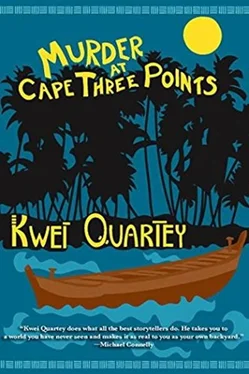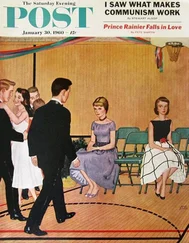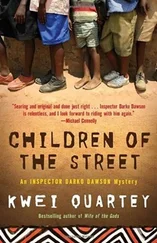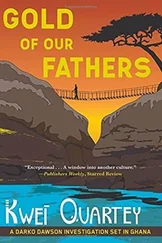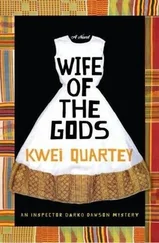He rested his head against the wall as he practiced a piece he had composed the week before, a cyclical arrangement with intertwined melodies. After a few minutes of playing, it put Dawson in a relaxed and meditative mood, almost trancelike. It was the next best thing to smoking marijuana, and in his months of kicking the habit, he had increasingly relied on his mbira to relieve tension. In the “good old days,” he combined smoking with mbira playing, a doubly heightening experience.
After half an hour, he became pleasantly drowsy. He reached out for the light switch on the wall to turn off the bare-bulb ceiling light and stretched diagonally across the bed since it was a little too short for him. He felt tired, but he couldn’t sleep. His mind flitted over the events of the past two days like an undecided hummingbird. Instinctively, he felt that the Smith-Aidoo murder had greater breadth and depth than any of his previous cases. Two corpses in a canoe adrift around a deep-sea oil rig, a severed head with an excavated eye socket, a nineteenth-century pocket watch with a scrawled inscription invoking blood ties. What did it all mean?
IN THE MORNING, DAWSON once again hired Baah’s taxi services for the day. On the way to Sekondi-Takoradi Police Headquarters, the young driver, curious about the Ghana Police Service and the work of a detective, peppered Dawson with questions.
“So I think say you dey come to Tadi to investigate that man they dey cut off his head.”
“Yes. Charles Smith-Aidoo. Did you hear something about it?”
“They say it be juju .”
“What do you think?”
He nodded. “It could be.”
Baah’s reference to the involvement of supernatural powers was the second one after Sly’s. An idea struck Dawson. “Do you know any juju men in Tadi?”
Baah hesitated. “Many of them dey.”
“Can we go to them?”
“I can take you,” he said with a nervous smile, “but me, I won’t talk to them. I fear them.”
“No problem.”
“So I should take you now?” Baah said, taking his eyes off the road briefly to look at Dawson.
“No-this evening, if we have time. If not, then tomorrow.”
“Okay, sir.”
THEY ARRIVED AT Sekondi Headquarters around 8:30. Superintendent Hammond was in a meeting with three of his detectives and Dawson had to wait until they were done. Two detectives left while ASP Seidu remained behind.
“Good morning, sir,” Dawson said as he came in, switching on what he hoped was a disarming smile.
“Good morning,” Hammond said dully, barely looking at him.
“Morning, Dawson,” Seidu said, more amiably.
“May I?” Dawson said, gesturing to an empty chair.
“Of course,” Hammond said indifferently.
Dawson sat.
“Yes, Inspector?” the superintendent said. “Can I help you?”
The smile didn’t work , Dawson thought. “Just wanted to report how things have been going so far.”
“Go ahead, then.”
Dawson related the events of the day before-his morning meeting with Dr. Smith-Aidoo and then the visit to her house.
“Seems she didn’t know about the pocket watch inserted into her uncle’s mouth,” Dawson said.
“Of course she knew,” Hammond said indignantly. “She has just forgotten because of the shock she was in. I told her about it myself.”
Perhaps the superintendent was telling the truth, Dawson reflected, but he doubted it. How would Dr. Smith-Aidoo have forgotten that kind of lurid detail?
“Do you have anything else?” Hammond asked, resuming his aloof tone. “I have to get to a regional meeting.”
He looked at his watch conspicuously, which Dawson ignored as he removed a document from his folder.
“As you already know,” he said, “Fiona Smith-Aidoo had a rivalry with Kwesi DeSouza.” He leaned forward and handed Superintendent Hammond the minutes of the acrimonious meetings. “I don’t know if you saw this.”
Hammond glanced at it and gave it back. “We questioned Mr. Kwesi DeSouza closely. He denied being on bad terms with Mrs. Smith-Aidoo or having anything to do with her death. Then we checked his whereabouts on the seventh and eighth of July. He has an alibi. We also looked into any possibilities that Mr. DeSouza could have hired someone. We have not found anything.”
Dawson nodded respectfully. That sounded like some solid detective work had been done. “Another name that came up in these meetings at the STMA,” he continued, “was Reggie Cardiman, the gentleman who owns the Ezile Bay Resort at Cape Three Points.”
“We already know about him,” Hammond said, leaning back in his chair and irritably tapping the end of his pen on his desk. “He has lived in Ghana for almost twenty years-he even speaks Fante. He is crazy about wildlife and the environment and all that stuff, and he loves his Ezile Bay Resort. The village next to Ezile Bay is called Akwidaa. Various companies have approached the chief, Nana Ackah-Yensu the third, about buying land in the area-oil companies, real estate developers, and so on. Some have accused Ackah-Yensu of selling off tracts of land, although he denies it and says he wants to collaborate only with the government to develop that area.”
Dawson leaned forward, happy to get this kind of information and wondering if the superintendent might be finally thawing out.
“Nana Ackah-Yensu told us that Malgam Oil wanted to build luxury villas in Akwidaa,” Hammond continued, rocking back and forth slightly in his squeaky chair-a nervous habit, perhaps. “That’s where the Ezile River joins the sea and a beautiful bay is formed, as well as some ruins of a German fort built in the seventeenth century. So, this is attractive real estate and the kind of scenery these tourists love.”
“So, did Charles Smith-Aidoo go to the chief to talk to him about the villas?” Dawson asked.
“I was just coming to that,” Hammond said, holding up his palm. “He approached the chief about the possibility of relocating Akwidaa either farther inland or farther east in return for building a new village from scratch with running water and electricity.
“Meanwhile, Smith-Aidoo went to Cardiman to tell him that if Chief Ackah-Yensu agreed to move, Malgam Oil would likely annex the Cardiman’s Ezile resort as well, in order to build more chalets. Cardiman leases the land from the Akwidaa village so he would have no legal right to stop it.”
“The prospect of losing Ezile Bay was probably terrifying for him,” Dawson said. “It would give Cardiman a strong motive. Could he have followed the Smith-Aidoos and ambushed them on the road from Ezile?”
Hammond shook his head. “They left Ezile around twelve thirty, and we have confirmed that Cardiman did not leave for Takoradi until one o’clock. The Smith-Aidoos would have been long gone by then, and Cardiman could never have caught up with them.”
“Maybe he had an accomplice who delayed them until Cardiman arrived.”
“Maybe this, maybe that,” Hammond said, with a sardonic smile. “We can’t operate on maybes. At the end of the day, there is no evidence whatsoever that Cardiman was involved.”
Discussion over , Dawson thought. He moved on. “I found an old phone in Mr. Smith-Aidoo’s study. Were you aware of it?”
Hammond looked at Seidu and then shook his head. “No, we didn’t find anything like that in his desk, and his niece didn’t mention it.”
“It was buried in a box of old equipment and cables,” Dawson said.
“What about it?” Hammond asked.
“I saw some text messages from Charles Smith-Aidoo to a Lawrence Tetteh.”
Hammond’s rocking stopped abruptly in the forward phase and he almost hurtled off his chair. “Did you say Lawrence Tetteh?”
Читать дальше
